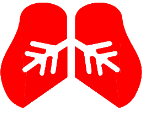If you have allergies, you may be wondering if allergy shots are the best treatment for you. After all, getting regular shots isn’t anyone’s idea of fun, but the possibility of being free from your allergy symptoms may be worth it. Allergies are the result of a chain reaction that starts in the immune system. Your immune system controls how your body defends itself. For instance, if you have an allergy to pollen, your immune system identifies pollen as an invader or allergen. Your immune system overreacts by producing antibodies called Immunoglobulin E (IgE). These antibodies travel to cells that release chemicals, causing an allergic reaction.
Allergy shots (or immunotherapy) are aimed at increasing your tolerance to allergens that trigger your symptoms every time you are exposed to them. An allergist/immunologist, often referred to as an allergist, is the most qualified physician to test which allergy you have and tell you if allergy shots are right for you.
Who can be Treated with Shots?
Allergy shots are recommended for patients with allergic asthma, allergic rhinitis/conjunctivitis and stinging insect allergy. They are not recommended for food allergies. Before a decision is made to begin allergy shots, the following issues must be considered:
Length of allergy season and the severity of your symptoms
Whether medications and/or changes to your environment can control your allergy symptoms
Your desire to avoid long-term medication use
Time: immunotherapy requires a major time commitment
Cost: may vary depending on your region and insurance coverage
Immunotherapy for children is effective and often well tolerated. It might prevent the onset of new allergen sensitivities or the progression to asthma. In some patients that suffer from other medical conditions or who take certain common medications, allergy shots may be more risky. It is important to mention other medications you take to your allergist.
Who Should be Giving Allergy Shots?
Because adverse reactions to allergy shots may occur, your allergist has the right staff and equipment to identify and treat these reactions. If possible, allergy shots should be given in your allergist’s office. If not, your allergist should provide the supervising physician with complete instructions about your treatment.
How do Allergy Shots Work?
Allergy shots work like a vaccine. Your body responds to the injected amounts of a particular allergen (given in gradually increasing doses) little by little, developing a resistance and tolerance to it. Allergy shots can lead to decreased, minimal or no allergy symptoms when you are again exposed to the allergen(s) in the shot.
There generally are two phases to immunotherapy: build-up and maintenance. The build-up phase, generally ranging from three to six months, involves receiving injections with increasing amounts of the allergens. The frequency of injections is once or twice a week, though more rapid build-up schedules are sometimes used. The maintenance phase begins when the most effective dose is reached. This dose is different for each person, depending on how allergic you are and your response to the build-up phase. Once the maintenance dose is reached, there are longer periods between injections, typically two to four weeks.
When Will I Feel Better?
For some people, a decrease in symptoms is seen during the build-up phase; for others, it may take as long as 12 months on the maintenance dose.
If you don’t respond, it may be caused by:
Not enough dose of the allergen in your vaccine
Missing allergens not identified during your allergy testing
High levels of the allergen in your environment
Major exposure to non-allergic triggers (i.e. tobacco smoke)
If there is no improvement after a year of maintenance allergy shots, your allergist will discuss other treatment options with you.
When Should Allergy Shots be Stopped?
Once the maintenance dose is reached, effective immunotherapy is generally continued for three to five years. The decision to stop should be discussed with your allergist at that time. Some individuals may experience a permanent reduction of their allergy symptoms but others may relapse and a longer course of allergy shots can be considered.
What are the Possible Reactions?
There are two types of adverse reactions that occur with allergy shots. Local reactions are fairly common and occur as redness and swelling at the injection site. This can happen immediately, or several hours after the treatment. Systemic reactions are much less common, are usually mild and typically respond quickly to medications. Signs include increased allergy symptoms such as sneezing, a stuffy nose or hives. Rarely, a serious systemic reaction called anaphylaxis (pronounced an-a-fi-LAK-sis) can develop, with swelling in the throat, wheezing, a feeling of tightness in the chest, nausea or dizziness. Most serious systemic reactions develop within 30 minutes of allergy injections. This is why it is strongly recommended you wait in the office for 30 minutes after your injections. Your allergist is trained to watch for such reactions and his or her staff is trained and equipped with the proper medications to identify and treat them.
The contents of this page are for informational purposes only. It is not intended to replace evaluation by a physician. If you have questions or medical concerns, please contact your allergist/immunologist.
